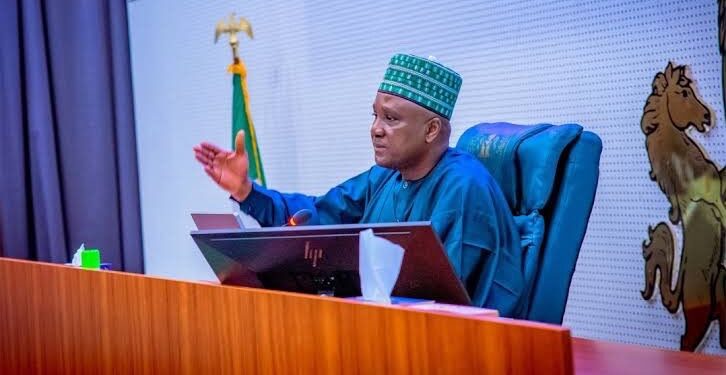Speaker of the House of Representatives, Mr. Tajudeen Abbas, has said continued over-reliance on oil by the country will only lead to inequality, greater poverty among Nigerians and mass unemployment.
Abbas, while delivering the 14th convocation lecture of the Al-Hikmah University in Ilorin on Monday, said Nigeria should harness its abundant resources and human capital to diversify its economy.
“This will help to ensure long-term growth and sustainability,” he said.
The News Agency of Nigeria (NAN) reports that the lecture had the title “Beyond oil: exploring alternative revenue potentials for economic growth and sustainable development in Nigeria”.
The Speaker noted that to secure Nigeria’s economic future, the country must decisively move beyond oil and develop sustainable pathways for inclusive growth.
“With dwindling oil revenues, global shifts toward renewable energy, and the increasing need for job-creation, it is imperative that we chart a new course for economic transformation.
“This requires deliberate efforts to unlock the potential of other sectors, such as agriculture, solid minerals, technology and the creative industries.
“Achieving this transformation will secure Nigeria’s economic future and address poverty, inequality and unemployment —- critical barriers to sustainable development,” he said.
Abbas also said examples of such countries toeing that line are Saudi Arabia, Malaysia and the United Arab Emirates (UAE).
“They have demonstrated that economic transformation is achievable through deliberate diversification strategies anchored on policy reforms, infrastructure investments and human capital development.”
He stated that the lecture has underscored the urgency of harnessing Nigeria’s abundant natural resources, fertile agriculture lands, burgeoning creative industries and vibrant technology sector to build a resilient economy.
“Targeted policies, institutional reforms and partnerships can unlock the potential in agriculture, solid minerals, manufacturing, ICT and renewable energy,” the Speaker added.
He also said Nigeria’s economic transformation demands collective responsibility, adding that the government must lead with visionary policies, transparent governance and strategic investments in infrastructure and education.
The Speaker noted that the legislature on its part should continue to ensure enabling legislation and ensure rigorous oversight of policies and programmes aimed at diversification.
He however pointed out that the academia has a vital role in conducting research, generating data-driven insights and developing skills essential for the new economy,” he stated.
The Speaker, who charged the country’s universities to strengthen collaborations with industries in order to drive innovation and entrepreneurship, said the private sector must embrace investments in emerging industries.
He added that the private sector support small and medium scale enterprises and leverage technology to boost productivity.
“As the backbone of Nigeria’s workforce, youths, including all of you in this hall, must seize opportunities in entrepreneurship, agriculture, digital technology and creative industries to redefine Nigeria’s economic narrative.
“Examples from countries like Malaysia and Singapore demonstrate how aligning government policies, academic research, and private-sector innovations can drive transformation.
“Malaysia’s focus on manufacturing and industrialisation, coupled with sustained investments in education and technology, propelled it into a diversified economy.
“Singapore leveraged its strategic policies and talent pool to become a global hub for finance and innovation.
“These models show that with sustained commitment, Nigeria can achieve economic stability and prosperity,” he said.
NAN reports that the convocation lecture programme was followed by the commissioning of Faculty of Management Sciences of the university by the Speaker.(NAN)











